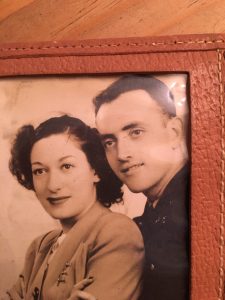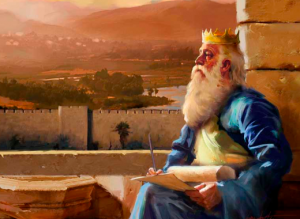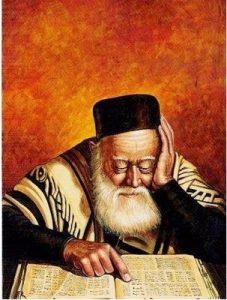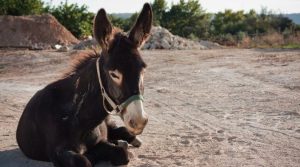Bolok 2017: SPECIAL EDITION – Norman Bigel Marks His 100th Birthday Today!
by devadmin | July 6, 2017 7:53 pm
SPECIAL EDITION – Norman Bigel Marks His 100th Birthday Today!
The Last Group of Jews to Die in The Midbar
In our review of Parshas Bolok 2014, we shouted out Norman Bigel on the 84th anniversary of his bar mitzvah. That was three years ago. This coming shabbis, on Parshas Bolok, Norman will again be called to the Torah (followed by a BIG kiddish in his honor) at Congregation Beth Sholom in Lawrence New York as he marks the 87th anniversary of his bar mitzvah; a very happy birthday Norman; may you live until at least 120.
Here is Norman just over two weeks ago: chazak!
Other than mentioning Paroy’s birthday, there isn’t much written in the heylige Toirah, or even in the Gemora, about birthdays; nor about old age. There was a time, as recounted in Sefer and Parshas Bereishis, when people lived hundreds of years. Avada we all recall that Odom lived 930 years, his son Shase (Seth) lived 912 years. Enosh lived 910 years, Misushelach, 969 years, and let’s not forget Oig Melech Haboshon, whom we shouted-out last week and who, if the medroshim we read are all emes, lived over 1400 years, maybe a few hundred more. We would be remiss if we didn’t mention Lemach, he perhaps most famous for having two wives (one for childbearing and one just for fun, if you chap, so says Rashi, who else), and still somehow managed to live 777 years, ober that was back then. Nowadays those with two wives don’t last very long. Mostly by choice! By the time our Ovis (forefathers) came along, life spans which had been dwindling steadily following Noiach’s generation, were continuing their decline, and each of them lived under 200 years.
And why taka do we wish upon people long life, typically by adding the phrase -ad meoh v’esrim- (until 120)? In Tihilim (Psalm 90), Dovid Hemelch tells us that the years of man are but 70, but if with strength, 80 years. And if that’s the case, how is it taka that people in our times, albeit not many, live longer lives? Are people like Norman ushering in a new age, perhaps the ikvisa d’moshiach (Messianic times)? Perhaps!
 Nu, to answer that question, we turn to the Novee Yishaya (Isaiah) and quote pisukim 20 and 21 from perek 65. Says the Prophet: “And I will rejoice in Jerusalem, and I will exult with My people, and a sound of weeping, or a sound of crying, shall no longer be heard therein. There shall no longer be from there a youth, or an old man, who will not fill his days, for the youth who is one hundred years old shall die, and the sinner who is one hundred years old shall be cursed.” Ok, that was a mouthful and what the hec was the Novee talking about? Nu, like many of Isaiah’s words which have, and continue to be debated, mostly by the umois ho’oilom (goyim), these too need some elucidation and it comes from respected commentators including Rashi, the Ibn Ezra, the Radak and the the Mitzudas Dovid who collectively tell us azoy:
Nu, to answer that question, we turn to the Novee Yishaya (Isaiah) and quote pisukim 20 and 21 from perek 65. Says the Prophet: “And I will rejoice in Jerusalem, and I will exult with My people, and a sound of weeping, or a sound of crying, shall no longer be heard therein. There shall no longer be from there a youth, or an old man, who will not fill his days, for the youth who is one hundred years old shall die, and the sinner who is one hundred years old shall be cursed.” Ok, that was a mouthful and what the hec was the Novee talking about? Nu, like many of Isaiah’s words which have, and continue to be debated, mostly by the umois ho’oilom (goyim), these too need some elucidation and it comes from respected commentators including Rashi, the Ibn Ezra, the Radak and the the Mitzudas Dovid who collectively tell us azoy:
Back then, at sixty, one was already considered an old man but one has not fulfilled his his day until seventy. When Yishaya wrote in ‘those days’ -referring to the days when the Moshiach will be with us- he was stating the following. In those days, it will not be said that one has filled his days unless he has reached the age of 300 or thereabouts, as in the earlier generations (the days from Odom until Noiach) when some individuals, or perhaps the general population, attained such longevity. In Messianic times, all the Yiddin will live that long. And if one is punished at 100, it will be said of him that he died a young man. Might Norman Bigel be ushering in the beginnings of those days? Perhaps.
Or, might the RBSO have rewarded Norman for the performance of a mitzvah that is attached to arichas yomim (long life)? Nu, though most of us know that two mitzvis are associated with long life (kibud Av vo’aim and shiluach hakan), not many – very few- know that there is yet one more mitzvah whose observance brings about long life. The guarantee is not inferred from a medrish; it is instead a guarantee from the RBSO Himself; it’s bankable. Says the heylige Toirah (Devorim 25: 13-15) azoy:
| 13. You shall not keep in your pouch two different weights, one large and one small. | יגלֹא יִהְיֶה לְךָ בְּכִיסְךָ אֶבֶן וָאָבֶן גְּדוֹלָה וּקְטַנָּה: | |
| 14. You shall not keep in your house two different ephah measures, one large and one small. | ידלֹא יִהְיֶה לְךָ בְּבֵיתְךָ אֵיפָה וְאֵיפָה גְּדוֹלָה וּקְטַנָּה: | |
| 15. [Rather,] you shall have a full and honest weight, [and] a full and honest ephah measure, in order that your days will be prolonged on the land which the Lord, your God, gives you. | טואֶבֶן שְׁלֵמָה וָצֶדֶק יִהְיֶה לָּךְ אֵיפָה שְׁלֵמָה וָצֶדֶק יִהְיֶה לָּךְ לְמַעַן יַאֲרִיכוּ יָמֶיךָ עַל הָאֲדָמָה אֲשֶׁר יְהֹוָה אֱלֹהֶיךָ נֹתֵן לָךְ: |
Could it be any more clear? And while we are certain that Norman treated his parents with the utmost of respect and don’t know whether or not, he ever had the opportunity to perform the mitzvah of shiluach hakan (shooing away the mother bird in order to access her chicks), we are certain of this: the mitzvah of having honest weights and measures is mamish connected to and rewarded with long life. In earlier days, in two of Norman’s businesses, Norman relied heavily on such weights and scales. While selling meat as a kosher butcher in (Borough Park) the 1950’s, and while selling fish on a wholesale level, Norman’s weights and measure were seemingly accurately calibrated. The RBSO delivered!
Norman, a very kind and gentle soul who can still mesmerize you with stories dating back decades, and who loves coming to shul to listen to his favorite rabbi, does mark a special day today, and on behalf of the Oisvorfer community of readers and followers, -mamish hundreds of thousands all over the world- it is my pleasure to wish him a very happy birthday. The always eloquent Rabbi Hain will certainly add a few pearls of wisdom when he wishes Norman a happy birthday on shabbis morning. Those nearby should pop in and greet Norman in person. May his days and years left on this earth be filled with good health -mental and physical- constant and pleasant memories of the great years he had with his wife Ethel, OBM, and nachas from his children and grandchildren. Omen!
 Ober, who is Norman Bigel and why is he being shouted out? Is he a relative? Not! Nu, since readership has grown by a few hundred thousand these past few years, the Oisvorfer was seriously considering repeating his 2014 birthday shout out and profile in its entirety but won’t. Instead you are urged to click here and to find out how, and under what circumstances the Oisvorfer met Norman and how a friendship blossomed. Since the passing of his beloved eishes chayil Ethel to whom he was married a full 70 years but knew 75 (their plans, though not their romance, was delayed while Norman was serving his country,) life has not been the same. And with age, activities -including tennis and racquetball- he enjoyed well into his 70’s, are now just memories. Also with age, other challenges have crept up on him. Nonetheless, Norman presses on daily and keeps busy reading, going to shul, talking on the phone or in person to family and friends. As a result of the extreme kibud Av -every father should be blessed to be on the receiving end of- by Norman’s very dedicated son Alan (himself of retirement age), Norman is able to live on his own in the same co-op he shared with his wife. Earlier today, a home-made challah, and a potato kugil were delivered to Norman. Some say those items, too, prolong life, ver veyst.
Ober, who is Norman Bigel and why is he being shouted out? Is he a relative? Not! Nu, since readership has grown by a few hundred thousand these past few years, the Oisvorfer was seriously considering repeating his 2014 birthday shout out and profile in its entirety but won’t. Instead you are urged to click here and to find out how, and under what circumstances the Oisvorfer met Norman and how a friendship blossomed. Since the passing of his beloved eishes chayil Ethel to whom he was married a full 70 years but knew 75 (their plans, though not their romance, was delayed while Norman was serving his country,) life has not been the same. And with age, activities -including tennis and racquetball- he enjoyed well into his 70’s, are now just memories. Also with age, other challenges have crept up on him. Nonetheless, Norman presses on daily and keeps busy reading, going to shul, talking on the phone or in person to family and friends. As a result of the extreme kibud Av -every father should be blessed to be on the receiving end of- by Norman’s very dedicated son Alan (himself of retirement age), Norman is able to live on his own in the same co-op he shared with his wife. Earlier today, a home-made challah, and a potato kugil were delivered to Norman. Some say those items, too, prolong life, ver veyst.
Ober, before you click over to Bolok 2014 to read the amazing story of how the Oisvorfer first met Norman and befriended him, as Norman’s birthday was approaching, the following question was on the Oisvorfer’s mind: was it correct to wish Norman ‘biz hindred un tzvuntzig’ (may he live until 120 years of age) as we did in 2014? Or, should we wish him long life to at “least” 120 as you read on top of page one? Which is the correct form?
Nu, as it turns out, last year during Sukkis, as Parshas V’zois Habrocho was being reviewed, as was the passing of Moishe in that very parsha at the age of 120, there was some controversy over this very topic. Is wishing a person life until 120 perhaps a curse vs. a blessing. Is it? And why taka do we wish people life until 120? Why not longer? Nu, for decades, if not for generations, conventional wisdom and the prevailing minhag was, upon hearing someone’s age, or while wishing anyone a happy birthday, to add the words ‘biz hindred un tzvuntzig’ (until one hundred and twenty). Ober, who started this minhag and on what basis? Is the minhag correct? Should it be changed?
Seemingly it all harks back to a few words found at the very end of Parshas Bereishis, let’s review them. Says the heylige Toirah (Bereishis 6:1 – 3), azoy:
| 1.And it came to pass when man commenced to multiply upon the face of the earth, and daughters were born to them. | אוַיְהִי כִּי הֵחֵל הָאָדָם לָרֹב עַל פְּנֵי הָאֲדָמָה וּבָנוֹת יֻלְּדוּ לָהֶם: | |
| 2 That the sons of the nobles saw the daughters of man when they were beautifying themselves, and they took for themselves wives from whomever they chose. | בוַיִּרְאוּ בְנֵי הָאֱלֹהִים אֶת בְּנוֹת הָאָדָם כִּי טֹבֹת הֵנָּה וַיִּקְחוּ לָהֶם נָשִׁים מִכֹּל אֲשֶׁר בָּחָרוּ: | |
| 3 And the Lord said, “Let My spirit not quarrel forever concerning man, because he is also flesh, and his days shall be a hundred and twenty years.” | גוַיֹּאמֶר יְהֹוָה לֹא יָדוֹן רוּחִי בָאָדָם לְעֹלָם בְּשַׁגָּם הוּא בָשָׂר וְהָיוּ יָמָיו מֵאָה וְעֶשְׂרִים שָׁנָה: |
 Growing up, many (including the Oisvorfer himself) were taught, and believed mamish, that the words ‘his days shall be one hundred and twenty’ were the basis of man’s lifespan being limited to 120 years. Which taka made some sense because leading up to the decree, people like Odom Horishoin, Noiach and others all lived over 900 years. Let’s not forgot to shout-out Misushelach (Methuselah), he having lived 969 years. Ober in generations to follow, life spans were dramatically reduced and by the time our forefathers took center stage, they each lived under 200 years. Finally, at the very end of the heylige Toirah we read that Moishe passed at 120.
Growing up, many (including the Oisvorfer himself) were taught, and believed mamish, that the words ‘his days shall be one hundred and twenty’ were the basis of man’s lifespan being limited to 120 years. Which taka made some sense because leading up to the decree, people like Odom Horishoin, Noiach and others all lived over 900 years. Let’s not forgot to shout-out Misushelach (Methuselah), he having lived 969 years. Ober in generations to follow, life spans were dramatically reduced and by the time our forefathers took center stage, they each lived under 200 years. Finally, at the very end of the heylige Toirah we read that Moishe passed at 120.
And the question remains: should we wish someone life ‘ad meoh v’esrim (until 120)? Says Rashi and (seemingly, so also say many if not most other commentators), that the 120 years of man’s life as stated by the RBSO in Bereishis, refer not to his individual lifespan. What then was the RBSO referring to? Seemingly to the 120 years the RBSO was allotting for the ‘doir hamabul (generation of the flood) to do tshuva. And taka tshuva is just what they needed if Rashi is correct and men were busy chapping what was not theirs. The decree then was directly related to what was going on between men and woman. Nu, as to why the RBSO gave these men and women 120 years to repent, ver veyst? Mistama He chapped that they were so steeped in whatever perversions and predilections were stimulating them, that they efsher needed time to withdraw, if you chap, and detox from their intoxicating behavior. Whatever: 120 years was a very long leash and more than enough time to party hearty. Avada we recall that 120 years was seemingly still not enough time: they did in fact not repent and the world was destroyed. Many blame Noiach for not being more persuasive during the 120 year grace period (free-for all) about the coming flood and their need to repent. We shall discuss this topic more biarichus (in depth) and the job Noiach did or didn’t do as his parsha comes along. Surprisingly Rashi does not even mention as a second or alternate pshat, the 120 year decree as possibly referring to lifespan. In other words: 120 years was strictly mabul related.
Oib azoy (that being the case), where is the source for man being limited to 120 years of life? Is there a source? And if there is no source, who says man can’t live longer? And before we sew this all up, let’s also recall the words of Dovid Hamelech, who besides being king of the Yiddin and besides having a slew of wives, including of course Batsheva, whom he spotted and summoned while she was still married to Uria the Chiti, introduced a shorter lifespan for man, in the book of Tihilim (Book of Psalms) which he authored. Nu, considering all that he accomplished, especially in the boudoir, if you chap, which he did, it was taka only appropriate for him to compose the sefer of Tihilim (Psalms). In any event, in Psalm 90 shteyt azoy (we find written): ”The days of our years among them are seventy years, and if with strength, eighty years.”
Ober, did King David mamish write these words? Maybe not! Some say (Rabaynu Art Scroll) that Dovid drew upon the works of ten different psalmists – including Moishe himself- as he composed this particular chapter of Tihilim. Says the Radak azoy: Dovid came across an ancient scroll written by Moishe which contained eleven psalms (90-100). In other words: Dovid did not state the man’s years are set at seventy, Moishe did. So happens that Dovid did pass away at 70 ober how he got to live until 70 is the subject of another medrish which involved Odom (Adam), which we will efsher delve into next week. Why Moishe would write that man’s years are set at seventy when his own brother and sister, both older than he, passed away at 123 and 126, ver veyst.
 Shoin, how long can man live? How long was he supposed to live? How old is the oldest man or woman on record? What the hec is going on? How is that in the days of Odom and Noaich man lived until 970 years but by the time the heylige Ovis came along, man’s years were reduced to under 200 and by the time of Moishe’s generation, 120 was the cutoff? And what of Dovid’s words about a lifespan of 70? Yikes, it’s mamish so confusing.
Shoin, how long can man live? How long was he supposed to live? How old is the oldest man or woman on record? What the hec is going on? How is that in the days of Odom and Noaich man lived until 970 years but by the time the heylige Ovis came along, man’s years were reduced to under 200 and by the time of Moishe’s generation, 120 was the cutoff? And what of Dovid’s words about a lifespan of 70? Yikes, it’s mamish so confusing.
Moreover, grada, back in September, The Jewish Home, a very decent local 5Towns publication carried a shtikel news brief which told us that “The longest documented lifespan in history was that of Jeanne Calment. The upbeat French woman died in 1997 at the age of 122.” How does reconcile with the mostly orthodox view that man is to live only until 120?
Veyter: So happens that the Ibn Ezra tells us that there are taka those who understand the words of ‘up until 120’ -the words we found in parshas Bereishis- to mean that the lifespan of humans is to be capped at 120. Ober upon further review, the Ibn Ezra himself rejects this pshat and holds like Rashi that the 120 years is not at all related to lifespan.
 Ober, since there are no other sources which connect 120 to lifespan, and since the 120 has been kimat universally adopted as gospel, it must be the case that Yiddin took the passing of Moishe at 120 and understood that 120 was the max a person should live on and in this world. Efsher they studied the posik of Bereishis and then combined it with the one in Devorim. Perhaps because the pisukim dealing with 120 are so far yet so close to one another in the heylige Toirah and shoin. An expression and salutation were born and became folklore. In the end, a life cap of 120 is not at all found in the heylige Toirah, Mishneh or even Gemora. On the other hand, we do come across certain luminaries, household names in the yeshiva and orthodox world, including Rebbes Akiva, Yoichonon Ben Zakkai, Yehudah Hanosi (codifier of the entire Mishneh) and the great sage Hillel, he of the famous Hillel and Shami duo who agreed on almost nothing (yet somehow got along), who all died at 120.
Ober, since there are no other sources which connect 120 to lifespan, and since the 120 has been kimat universally adopted as gospel, it must be the case that Yiddin took the passing of Moishe at 120 and understood that 120 was the max a person should live on and in this world. Efsher they studied the posik of Bereishis and then combined it with the one in Devorim. Perhaps because the pisukim dealing with 120 are so far yet so close to one another in the heylige Toirah and shoin. An expression and salutation were born and became folklore. In the end, a life cap of 120 is not at all found in the heylige Toirah, Mishneh or even Gemora. On the other hand, we do come across certain luminaries, household names in the yeshiva and orthodox world, including Rebbes Akiva, Yoichonon Ben Zakkai, Yehudah Hanosi (codifier of the entire Mishneh) and the great sage Hillel, he of the famous Hillel and Shami duo who agreed on almost nothing (yet somehow got along), who all died at 120.
Says the Oisvorfer azoy (own pshat): The bottom line: how long man is destined to live is somewhat confusing but is seemingly not set at 120, at least not so set anywhere in the heylige Toirah. Shoin, efsher we can kler that by wishing someone to live until 120, we are actually wishing upon them that they should lead fulfilled lives as did the sages mentioned above and certainly as did Moishe. One thing is zicher: wishing a person the life of any of these great sages and leaders -ad meoh v’esrim- is not a curse. If it is, many will sign up. And we close this portion by again wishing Norman good years ahead, at least until 120. Happy birthday!
Welcome to Parshas Bolok, one of the most fascinating in the gantze (entire) Toirah kula (entire Toirah). Why so, you ask? Because the story we’ll hear this coming Shabbis, unlike many others throughout the heylige Toirah, is told with very graphic detail, nothing left out. Whereas most other Toirah stories have gaping holes, so many at times that even after a complete reading, we are left to rely, as we have discussed in the past, on oral traditions, and what could be better if you chap, Bolok is, interestingly enough, punkt (specifically) farkert. This particular parsha describes in very colorful detail every move and counter move attempted during the conspiracy by its central characters to curse the Yiddin. And for that reason alone Parshas Bolok is perhaps the most fully developed story and storyline in the gantze Toirah kula. It’s screenplay ready. There’s really not much left to the imagination until we get to the last nine pisukim of the parsha where all hell breaks loose. Speaking of loose, a man from Sheyvet Shimoin to be identified by name in next week’s parsha, has an open and unusual public act of lewdness and salacious entanglement with a hot shiksa named Kosbi; their story continues into next week’s parsha of Pinchas. Ober chap nisht; that’s what he did, and his life wasn’t spared, though he was speared, if you get the point- he did. Oh, and also toward the very end, a good number of Yiddin did a very bad; seemingly, while begin seduced by young shiksas, they got quite naughty and also did some dastardly acts of avoido zoro. As you can only imagine, the heylige Gemora and so many others fill in the blanks, as did they, if you chap.
 Let’s do a quick one paragraph overview, here we go. King Balak of Moiov retains Bilam a famed non-Jewish prophet and sorcerer to curse the Yiddin. In the end, because only the RBSO is really in charge, blessings instead of curses will come out of his mouth including nevuah (prophecies) concerning the ultimate redemption. Following his unsuccessful attempts to curse the Yiddin he concocts one last plan; this one will work. Moabite women, some say they were Midianites, entice some (many thousands) of Yiddin into sin, by using one of the oldest tricks in the book: sexual favors! While being seduced and in compromised positions, the shiksas will also entice their customers into the worship of the Baal Peor deity. What this avoido zoro was and how people worshiped it, is a story onto itself, ober we are already on page six. The bottom line is that many thousands of Yiddin were seduced by hot shiksa Moabite and maybe also Midianite shiksas and once fully engaged, they also worshipped their idol. The RBSO, as most Oisvorfer readers know, abhors mamish, the combination of sexual lewdness and avoido zoro. There is no happy ending: instead, death follows kimat instantly. The RBSO commands Moishe to execute the guilty. Yet another plague breaks out, many more will die. Zimri, a leader amongst the Yiddin is consorting, in public mamish, with a hot shiksa princess; seemingly they were not observing the laws of tznius. Pinchas, Aharoin’s eynikel ( grandson), kills them both, and the plague is halted. Shoin, it’s one parsha later and another 24,000 dead Yiddin. Is that the real number? Perhaps not? Next year, when we review parshas Bolok more biarichus, we will explore how it’s shayich (possible) that close to 200,000 Yiddin were involved in the sexcapade episode concocted by Bilam. Stay tuned.
Let’s do a quick one paragraph overview, here we go. King Balak of Moiov retains Bilam a famed non-Jewish prophet and sorcerer to curse the Yiddin. In the end, because only the RBSO is really in charge, blessings instead of curses will come out of his mouth including nevuah (prophecies) concerning the ultimate redemption. Following his unsuccessful attempts to curse the Yiddin he concocts one last plan; this one will work. Moabite women, some say they were Midianites, entice some (many thousands) of Yiddin into sin, by using one of the oldest tricks in the book: sexual favors! While being seduced and in compromised positions, the shiksas will also entice their customers into the worship of the Baal Peor deity. What this avoido zoro was and how people worshiped it, is a story onto itself, ober we are already on page six. The bottom line is that many thousands of Yiddin were seduced by hot shiksa Moabite and maybe also Midianite shiksas and once fully engaged, they also worshipped their idol. The RBSO, as most Oisvorfer readers know, abhors mamish, the combination of sexual lewdness and avoido zoro. There is no happy ending: instead, death follows kimat instantly. The RBSO commands Moishe to execute the guilty. Yet another plague breaks out, many more will die. Zimri, a leader amongst the Yiddin is consorting, in public mamish, with a hot shiksa princess; seemingly they were not observing the laws of tznius. Pinchas, Aharoin’s eynikel ( grandson), kills them both, and the plague is halted. Shoin, it’s one parsha later and another 24,000 dead Yiddin. Is that the real number? Perhaps not? Next year, when we review parshas Bolok more biarichus, we will explore how it’s shayich (possible) that close to 200,000 Yiddin were involved in the sexcapade episode concocted by Bilam. Stay tuned.
A gittin Shabbis!
The Heylige Oisvorfer Ruv
Yitz Grossman
Source URL: https://oisvorfer.com/bolok-2017-special-edition-norman-bigel-marks-his-100th-birthday-today/

